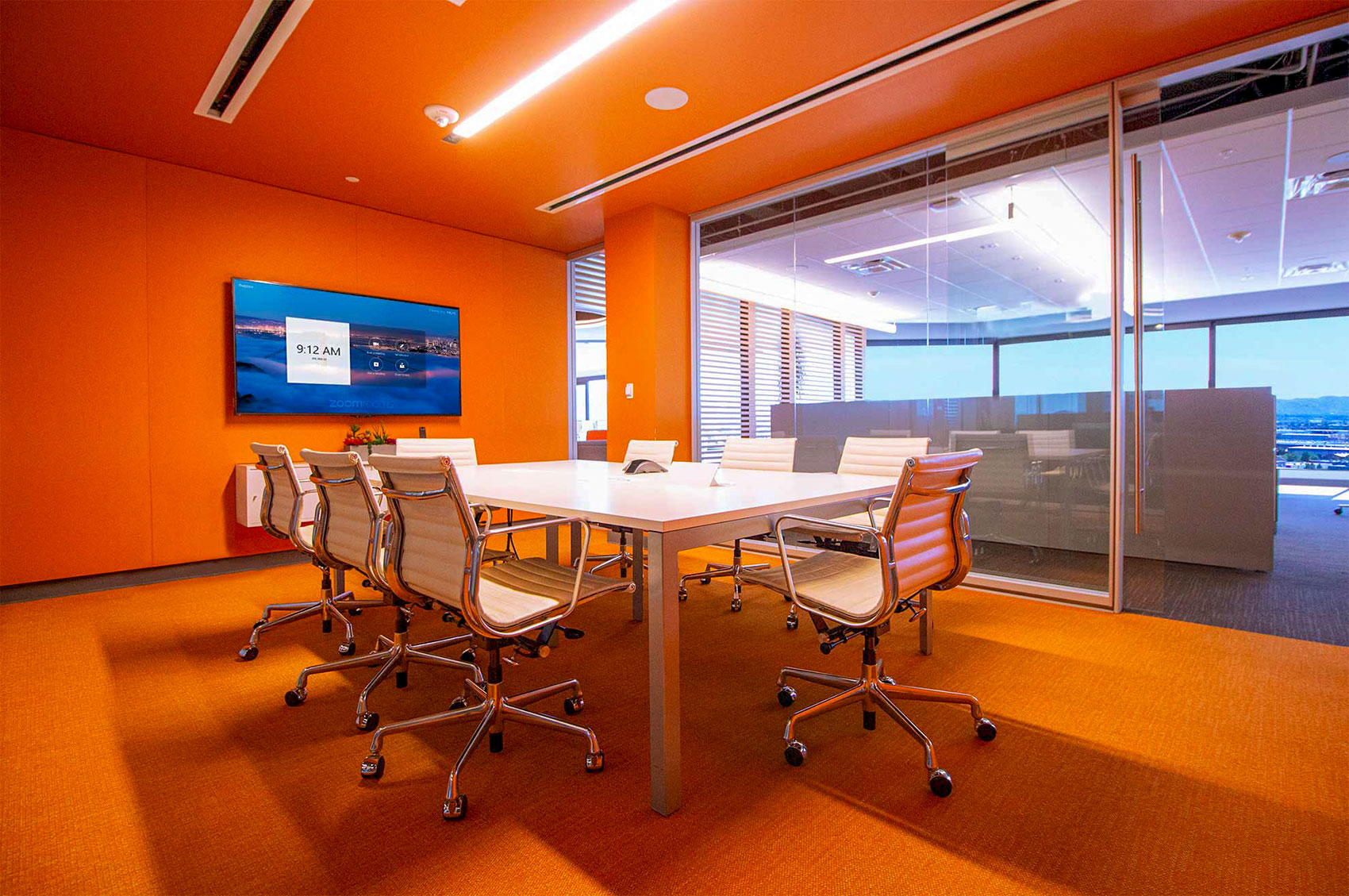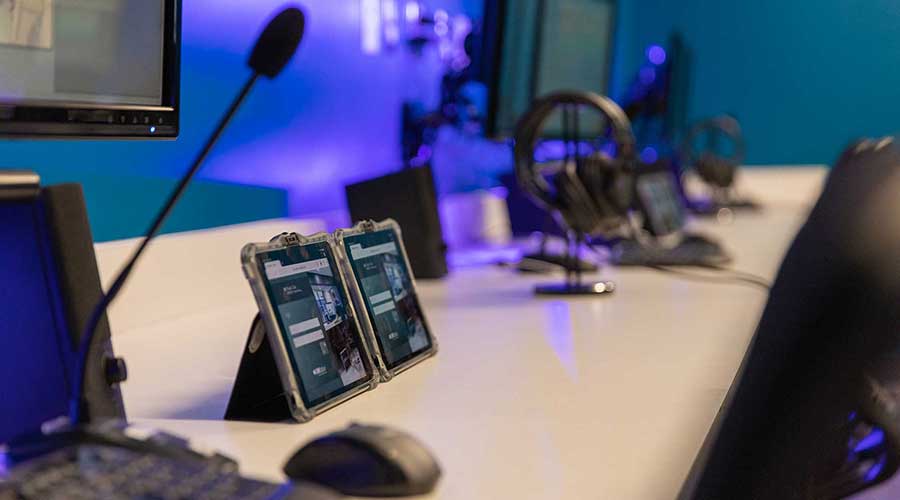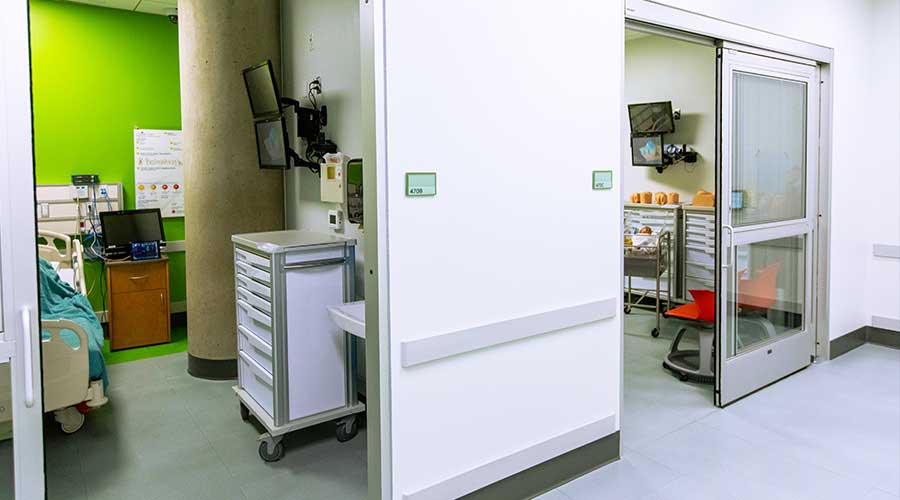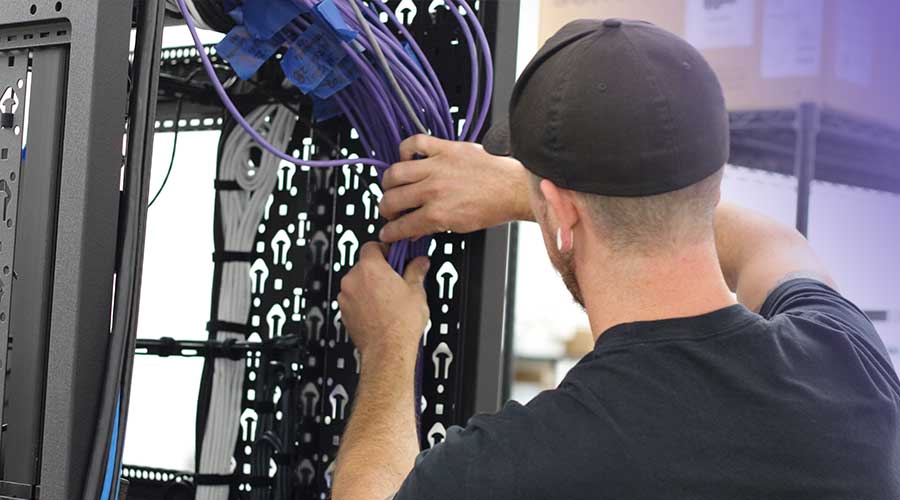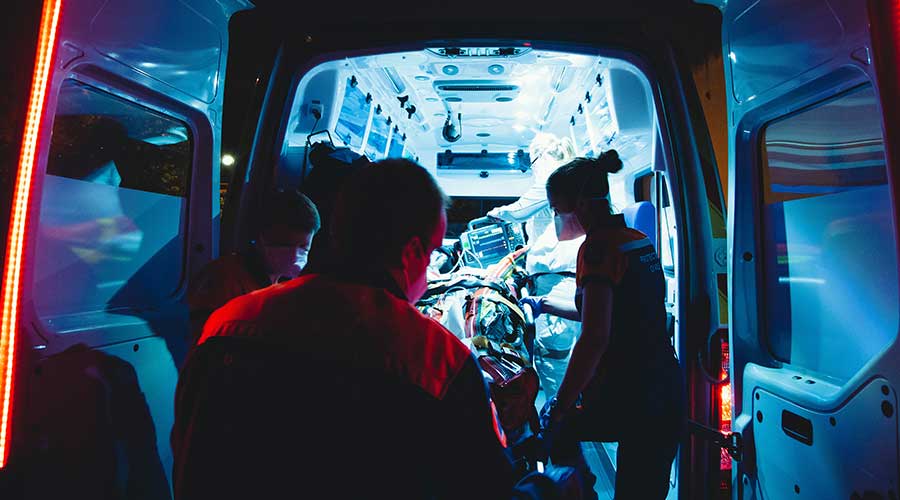Emerging technologies are changing the way healthcare is delivered, and those same technologies will change the way healthcare simulation training is delivered, and what skills prospective healthcare professionals need to succeed in the healthcare market of the future. According to research by Deloitte, global healthcare expenditures are expected to steadily increase at an annual rate of 5.4 percent through 2022 eventually reaching $10 trillion. That growth in the global healthcare market translates into growth for the healthcare simulation market, as increased demand for healthcare services creates demand for well-trained healthcare professionals. So what are these emerging technologies and how do they impact your simulation program? Here are six healthcare trends you should be prepared to incorporate and address.
on Monday, 10 February 2020.
Posted in Healthcare Simulation
EVERYTHING YOU NEED TO KNOW ABOUT CONFERENCE ROOMS IN 2020
As a new year looms, there is no shortage of predictions about the next big thing across every industry. Some, like bell bottoms making a comeback, won’t really matter either way. Others, like what new audiovisual technologies will drive innovation and collaboration, are predictions that no company can afford to ignore. Conference rooms are a critical setting for that innovation and collaboration, so it’s especially important to keep those spaces up-to-date. Keep reading to learn more about five trends in conference room design that your company should be prepared to adopt in the new year.
on Saturday, 25 January 2020.
Posted in Conference Room Design
Everything You Need to Know about AV Standards for Healthcare Simulation
Every part of healthcare training and delivery has its own tools of the trade. A doctor has to know their way around a stethoscope and blood pressure cuff. And as a simulation technician, you need to know how to operate all the tools in your simulation lab, including audiovisual equipment and technology. But managing all that technology is no small feat, even for experienced sim techs. Here are some resources that can help.
on Thursday, 23 January 2020.
Posted in Healthcare Simulation, Medical Simulation
3 Workstyle Trends and Why Video Collaboration Is the Best Fit for All of Them
While video is a medium that older generations are still getting used to—as anyone who has FaceTimed with their parents’ or grandparents’ foreheads can attest—for the generations currently entering the workforce, video chatting and collaborating is second nature. Millennials and Gen Z's think nothing of walking down the aisles of a grocery store video chatting with friends, and they expect that same type of video communication to be available at work as well. For your business, video collaboration is a win-win that gives workers the flexibility they crave while also providing opportunities for cooperation and collaboration that can drive innovation and growth at your company.
on Monday, 23 December 2019.
Posted in Hybrid Workplace , Video Conferencing
The fanciest manikin and most up-to-date medical equipment won’t make much difference in your simulation center if you don’t have audio and video tools that allow students and teachers to communicate clearly during scenarios, as well as review and debrief scenarios once they are over. With the right planning, however, you can design and install AV systems that support and enhance simulation in your center. At Level 3 Audiovisual’s recent Simulation Operations Boot Camp Scott Atkinson, Director of Healthcare Simulation, outlined five things to consider before you start the AV design and engineering process for your simulation center.
on Monday, 23 December 2019.
Posted in Healthcare Simulation, Medical Simulation, Medical Simulation Training
Overwhelmed by a Sim Lab Tech Upgrade? Here’s Everything You Need to Know
Are you a simulation technician tasked with choosing new technology for your simulation lab? And are you feeling overwhelmed by the task? Don’t panic. Choosing the best equipment for your sim lab—and getting it for the best price—can be as simple as scoring the perfect vacuum on Black Friday. Maybe even easier, because you won’t have to fight anyone for the last item on the shelf. Keep reading for tips on what you should consider when choosing new sim lab tools—and why the process might be easier than you think.
on Sunday, 22 December 2019.
Posted in Healthcare Simulation, High Fidelity Medical Simulation, Medical Simulation
Qualified AV Integrators Can Save You Worry…and Money. Here’s How
Managing your company’s audiovisual system is a full-time job, even in the best of circumstances. And it can be more than a full-time job if you are constantly trouble shooting and repairing malfunctioning AV systems. All that time rushing from fire to fire takes time away from your day-to-day tasks and mission-driven work, and you end up burning the midnight oil—and eventually burning out. Instead of spending your time helping an unreliable AV system limp along, you can start your AV project off on the right foot, with a qualified integrator that can save you all that anxiety—and save you money, too.
on Thursday, 12 December 2019.
Posted in Audio-Video Installation, Systems Integration
Good Patient Outcomes Depend on Effective Teamwork
The goal of every healthcare professional, from doctors and nurses to EMTs to pharmacists is the same: to provide positive outcomes for their patients. That goal, however, is not always easy to achieve. According to statistics reported by the National Institutes of Health (NIH), around 400,000 hospitalized patients in the United States experience some kind of preventable harm every year. Improved medical training through high-fidelity healthcare simulation can go a long way in better preparing healthcare providers and therefore reducing errors and improving outcomes. But improving providers’ individual skills and competencies is only part of the equation. Healthcare providers also need to learn how to work together and communicate effectively as part of a multidisciplinary team to improve overall medical care outcomes. Level 3 Audiovisual hosts quarterly skills camps, focused on teamwork training for healthcare students and professionals. Keep reading to learn more about the model that will be presented—and the benefits it could bring to your simulation center.
on Wednesday, 11 December 2019.
Posted in Medical Simulation Training
 The Top 6 Healthcare Simulation Trends to Watch
The Top 6 Healthcare Simulation Trends to Watch 